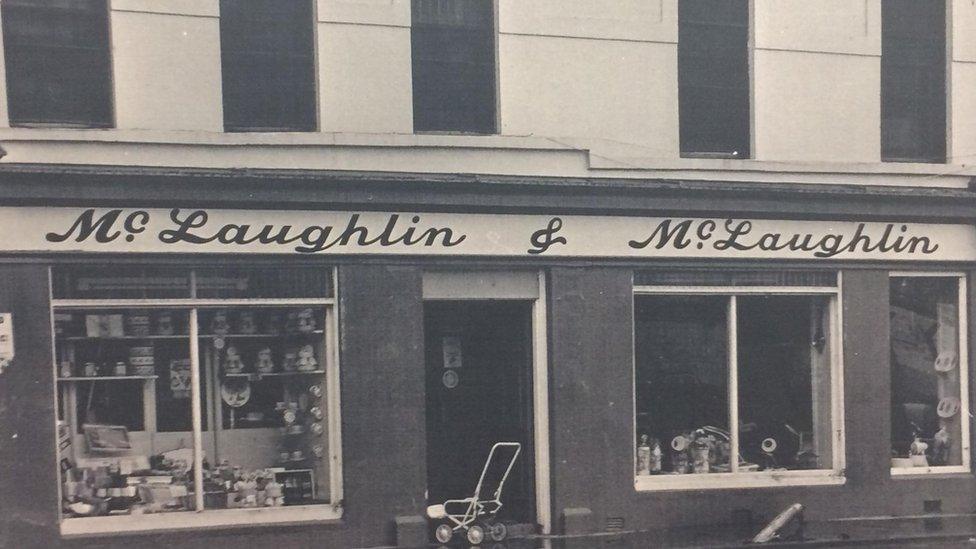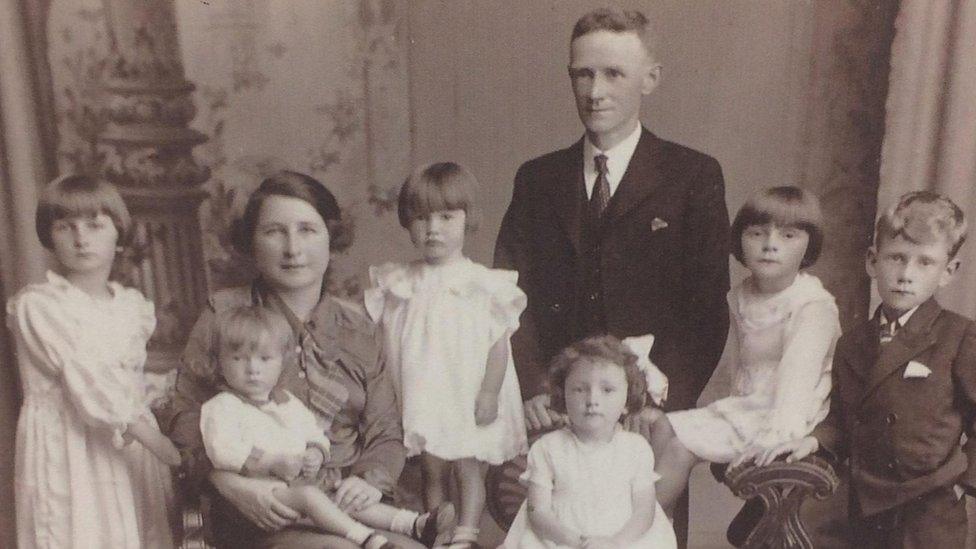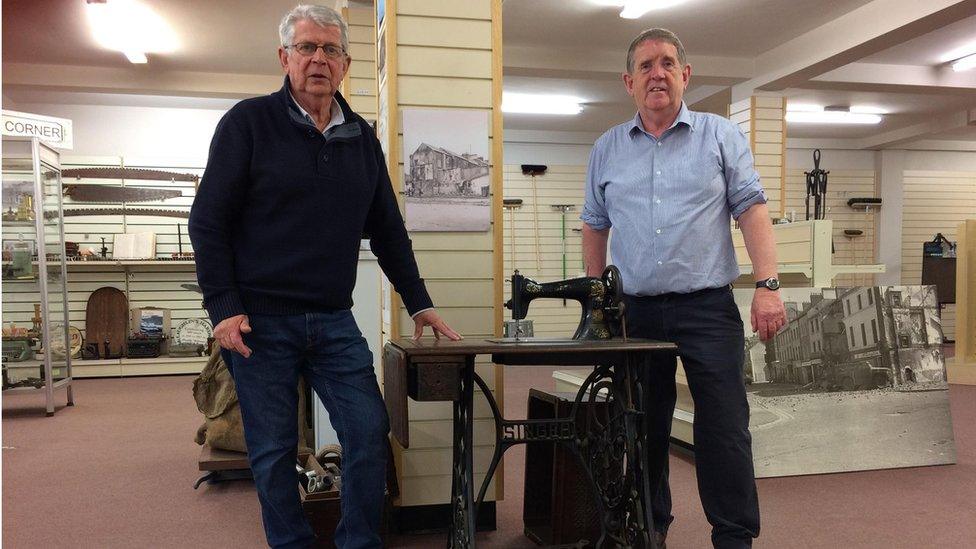McLaughlin's Hardware: Brothers to sell Bogside institution
- Published

The shop has been part of the city's fabric for generations
It has come through two world wars and the worst ravages of the Troubles.
That included bombings, arsons and customers caught up in running gun battles between the IRA and British Army.
McLaughlin's Hardware, on the fringe of Londonderry's Bogside, has been in the same family for more than a century.
But the third generation of owners - brothers Seamus, Dessie and Liam - have now decided that it is time to sell and for new blood to take over a business started by their grandfather, James McLaughlin, in 1913.
That was a year before the start of World War One when the population of Derry was around 40,000. It is nearly three times that today.
'Rising from the ashes'
Seamus McLaughlin, the eldest of the third generation of owners, said the shop had survived "turbulent times", including "one bomb and maybe four or five fires".
"There are photographs there of the original shop at 47 William Street," he showed BBC News NI.
"It was a substantial building and quite a substantial business as well. It was burnt in August '69 during those very turbulent times.
"After that, everything was moved to this side - 40 to 44 - this is where the keys were cuts and we sold all the fancy goods, if you like."
The shop's origin lies in 1913, the year stainless steel was invented in Sheffield and which would become the mainstay of so many products in McLaughlin's down the years.
"It was my grandfather, James McLaughlin, and a business partner of his, Bobby O'Donnell, who started it all just up William Street in number 75 and it was basically in the hardware business, selling much of what we still sell today," Seamus continued.
"But customers' tastes have changed down the years. So, back in the day, they would have sold everything from Gallaher's Blues to Park Drive [obsolete brands of cigarettes], and even items of a more spiritual nature.

James McLaughlin, who started the shop in 1913, pictured with his wife Margaret and children
"We sold Bibles and Rosary beads and all that stuff," added Seamus.
"People would traditionally have bought those when someone got married or moved into a new home, you know. But I haven't sold any now for a couple of years."
But customers' changing tastes were the least of the family's worries, especially after Bloody Sunday, when 13 civil rights demonstrators were shot dead by the Army close by in 1972.
Seamus said the business was almost destroyed and riots were "pretty common at the time on William Street".
"There were riots on most days - it was almost a daily occurrence," he said.
"We used to get quite a lot of plastic bullets and rubber bullets because they would have, maybe, landed in behind the chain-link fencing and the lads couldn't get in to get them so we would get them the next morning when we opened up."
A museum of Derry life

Seamus and Liam with old Singer sewing machine
Cheek-by-jowl, the small museum on the first floor of the store is a reminder of days gone by.
There are the Tilley lamps used by the forces during World War Two and the Singer sewing machines used by factory girls who put food on the table in this unemployment blackspot.
There is a Sacred Heart picture - part of the furniture in so many homes in this Catholic-majority city and a ledger showing the popularity of Gallaher's Blues [produced at Europe's largest tobacco plant at York Street, Belfast].
There is also a photo of the British Army "tin pig" crawling over the rubble outside the shop in darker days, after an IRA bomb had destroyed the business next door on William Street.
'Peace-makers'
In this context, two loyal customers are known for their prominence during the conflict, which left 3,500 people dead, and the peace process which followed.
Nobel Peace Prize winner and ex-SDLP leader John Hume and Martin McGuinness, the IRA commander-turned Sinn Féin deputy first minister, were familiar faces at McLaughlin's.
"They would have been regular in the shop and they would have been helping over the years," Seamus said.
"Any problems that you had, they were always there, to give you support.
"We're in a peaceful society now, more or less. They were the peace-makers."